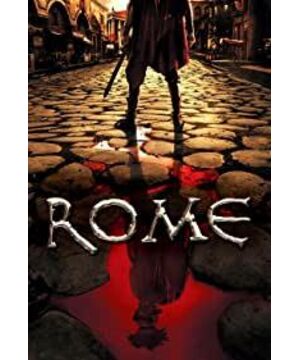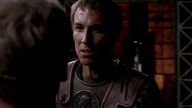When evaluating Caesar, one must use the word "great" with caution, because in many people's writings, he is a "tyrant". As far as Caesar's personal ability is concerned, no one can match him at the time. Military, he expeditioned to Gaul, fought against millions of barbarians, gloriously triumphant. Although Pompeo, one of the "top three", had military exploits and had put down the pirates in March, he lacked judgment and courage compared with Caesar. It does not seem surprising that he died in a foreign land. The author does not agree to regard the dispute between Caesar and Pompeo as a contest between "autocracy" and "republic", because it is nothing more than a struggle between two political groups, not only has nothing to do with justice, but also a far cry from the concept of modern democracy. From the so-called "class standpoint", Pompeo is allied with the Senate, which represents the power of the nobility, while Caesar has a large number of supporters from the civilian class. In contrast, it seems that Caesar’s “constituency” is more democratic. .
After defeating Pompey, Caesar set out to establish a system of centralization that was beneficial to him. Since he was awarded the position of dictator for life, he has been criticized by countless people, who believe that this is the beginning of dictatorship. In fact, the dictator is a kind of joint judge's office, which usually appears in extraordinary times (wars and civil strife) and is elected by the Senate. The dictator's combination of internal affairs and military power in order to quickly solve difficult problems is completely different from a "dictator." Then some historians have commented that Caesar is repeating the measures taken by the great dictator Sura, in the name of a republic, to exercise tyranny. Yes, Caesar did have this tendency, but this judgment became a permanent guess after his assassination. But Octavian, who really did this, had a much better reputation than Caesar, which is really puzzling. At the beginning of the establishment of the "Last Three Heads", Octavian bloodbathed the foreign parties in the city of Rome, which Caesar had never done before. Caesar's attitude towards the enemy, in some people's words, is really "womanly benevolent."
When Pompeo and the Senate declared Caesar a "public enemy of the whole people", Caesar led his troops south and entered Rome with little resistance. Pompey ran away in a hurry, leaving a lot of remnants of the party. Caesar declared that "those who obey me prosper", and did not implement "those who oppose me die." He treated all enemies who wanted to smash him with a kind of political tolerance. Caesar's adopted son Brutus and Cicero, whose political stance has always been vacillating, followed Pompeo to Greece. At the beginning, there was a taste of life and death, but Pompey was defeated in the battle of Fasalu. These two people decided to surrender to Caesar out of some consideration (the author thinks it is a desire to fear life and death). Regardless of the predecessors, Caesar greeted Brutus with a smile and regarded Brutus as his confidant. When Caesar went to Egypt, Pompeo was already in a different place. It is said that when Caesar saw Ptolemy's men bring Pompey's head up, he was furious and even cried about it.
According to a writer, Brutus has become a symbol of maintaining the republic, and his image is stalwart, which is really admirable. In my opinion, Brutus' personality seems to be a bit problematic. The father of Brutus died at the hands of Pompey, but when the "godfather" Caesar and Pompey clashed, he ignored the "father-killing hatred" and took refuge in the enemy's camp, a bit of acknowledging the thief as the father. But this seems a bit harsh, because you can say that Brutus has "a lofty ideal", why is his family feud? So in that case, why did he give up halfway and ignore his ideals? In this regard, Little Cato, who committed suicide by cutting his belly due to defeat, is a hundred times more respectable than him. It doesn't stop there. Caesar's understanding and affection seem to have failed to impress Brutus. He once did not recognize his father, but now he does not recognize his father. If this kind of person is admired by thousands of people, wouldn't it be necessary for the Confucian sages to beat their chests?
In any case, Caesar's death is not unrelated to his benevolent policy towards the enemy. He could have learned from Sura for a major cleansing, but he used tolerance to resolve hatred, and ended up ruining his fame. According to common sense, when the "tyrant" dies, the people of the world should clap their hands and cheer, right? Brutus thought the same way at the beginning. He thought that Caesar's power would fall apart in an instant, and the people would wear a laurel crown on his head. But when he stood in the square and announced the news of Caesar's death impassionedly, the crowd was silent, and no applause was heard. Before long, an angry crowd began to flock to the murderer's home. Countless people were killed, and Brutus had to flee in embarrassment. It seems that what he considers to be a great feat did not conform to public opinion. After Caesar's successor Octavian inherited his property, he completed his unfinished business and became the first emperor of the Roman Empire. It seems that Octavian's hero is not under Caesar. From a political point of view, the reason why he has been a "Prince of Peace" for decades is that he is well versed in officialdom, and he is not relentless when he should start. Caesar's tragedy lies in his failure to thoroughly understand the darkness of human nature. A Brutus who flutters from left to right has failed to attract attention, so how can he take the great rivers and mountains into his pocket?
Recall the last scene. The son of Venus, a proud Caesar with countless honours on his head, once led Roman soldiers to defeat Gaul and defeat a powerful enemy. The king of kings, in spite of all unlucky signs, walked into the crisis-ridden chamber with his head up. Facing the murderer, he fought hard and was stabbed 23 times without saying a word. When he saw Brutus also throwing his sword, he desperately said: "There are you too? My child." So he gave up resisting. , Fell to the place where he had stood countless times and delivered countless speeches. Caesar is gone, but imperator is still there. The word not only means "victor", but also gradually evolved into emperor and empire. If we remember July in English, we will remember the name of Caesar. If we know that there is a leap year every four years, we will know the Julian calendar.
Caesar is not a great emperor, because he never claimed to be emperor. He was just an unpaid idealist, an uncrowned king who left countless talks for future generations.
View more about Rome reviews











